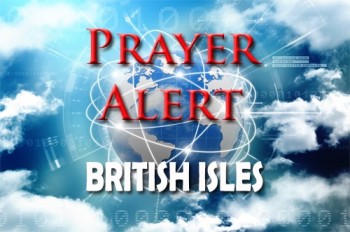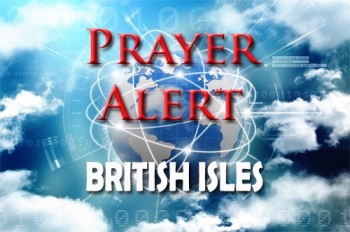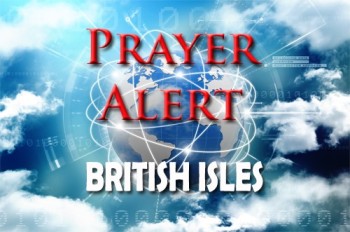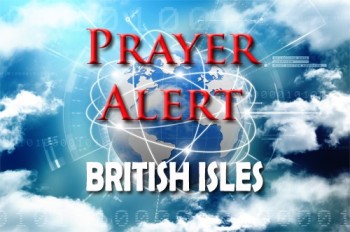Displaying items by tag: families
Expanded England childcare scheme ‘poorly thought out’
The Government’s expansion of free childcare in England, offering thirty hours a week from nine months of age, has been welcomed by some parents but criticised as poorly designed and underfunded. For Alec, a father in Sheffield, the policy reduced his family’s nursery bill by 55%; he calls it the first initiative with immediate positive impact on his life. Yet many providers say the funding does not cover costs, forcing them either to reject places, cap hours, or raise fees for other families. Parents in Oxford, Kent, and Hampshire described waiting lists of more than two years, rising charges, and nurseries unable to offer the full entitlement. Some households not eligible for the scheme reported fee increases of up to 30%, while others reduced working hours or diverted income to qualify. Critics say the expansion risks increasing demand without addressing structural shortages, leaving families with little flexibility and higher costs. While hailed as a major investment, many see the system as unsustainable, a 'sticking plaster' rather than a long-term solution for childcare. See
Fertility rates continue to fall, but number of births rise
Fertility rates in Great Britain have fallen to record lows, continuing a long-term decline seen since 2010. In England and Wales, the average dropped to 1.41 babies per woman in 2024, while Scotland recorded an even lower 1.25. Demographers say a replacement rate of 2.1 is needed to sustain population levels. Despite this, the number of births rose in 2024 due to immigration-driven population growth, with more women of childbearing age now living in the UK. Births to mothers from southern Asia and Africa have risen sharply, while births to EU-born mothers have declined since Brexit. Luton now records the highest fertility rate, with seven in ten babies born to foreign-born mothers. Fertility has fallen in all local authorities since 2014, though Birmingham has seen a recent rise. Experts warn that fewer babies combined with an ageing population will increase economic pressure, as fewer workers will be available to support rising healthcare and pension demands in the future.
UN report says world fertility rates in unprecedented decline
In India, Namrata Nangia and her husband long to have another child, but are held back by financial and time pressures - a dilemma increasingly shared worldwide. According to a new UN report, a global decline in fertility is not due to personal choice alone; many couples feel unable to afford larger families. Of 14,000 people surveyed across fourteen nations, one in five reported having fewer children than desired. Key barriers included financial limitations (cited by 39%) and lack of time. In nations like South Korea, the figure rose to 58%. Surprisingly, infertility accounted for just 12%. The UN urges caution against panicked policy responses, warning that such crises can prompt harmful nationalist or gender-conservative measures. Today’s challenges mirror shifts seen in countries that once feared overpopulation. As living costs, job demands, and social expectations rise, many parents like Namrata choose to focus their love and energy on one child - wrestling with the tension between desire and reality.
Colombia offers legal status to 540,000 Venezuelans
Colombia’s migration agency has said it will give legal status to up to 540,000 Venezuelan migrants who are guardians to minors residing in the country. Colombia has been a destination of choice for millions of Venezuelans seeking to escape the political and economic turmoil of their homeland, while others have used the Andean country as a stepping stone onwards to other nations. More than 2.8 million Venezuelan migrants currently live there, and the measure will benefit adults taking care of some 270,000 minors who have permission to live there. The agency’s director said, ‘It's a special permission to stay, like the previous ones, which fundamentally seeks to integrate guardians, those people who have responsibility for minors who have a temporary protection permit and who live in Colombia’. In 2021, the then government said it would give ten-year legal status to Venezuelans living in Colombia, an offer taken up by many migrants.
YMCA: help for youth services
The YMCA will continue its summer activities to entertain and feed young people and children, particularly from struggling families. It wants the Government to invest more in youth projects to avoid crime down the line and help desperate families as the long summer holidays loom. Richard James has urged churches to rally around their communities and offer similar initiatives for the children in their parishes. Experts foresee a difficult summer for families struggling with the cost of living crisis, as children will not receive free school lunches. James has seen a noticeable difference in children's experiences using the YMCA’s summer services in recent years and says it feels as if every year is another challenge. He says, ‘Some boroughs’ budgets have zero pounds per young person per head.’ In 2020, YMCA England reported a billion-pound decline in the amount of funding afforded to youth services by local authorities, with a decline of 69% since 2010. See
Turning hearts of fathers and children
Malachi 4:6 says, ‘He will turn the hearts of the fathers to the children, and the hearts of the children to their fathers’. We pray for this to happen in these days. May fathers and mothers rediscover their roles and lead their families with God’s wisdom, love, peace and righteous values. We pray that parents will raise their children with loving discipline and counsel that reflect Christian values. Father in heaven please help the fathers in this nation to re-discover the power of strong love, the kindness of Godly discipline and the blessing of patient encouragement, raising a generation of children fully equipped for their future. We cry out for the children across this nation to experience Godly discipline from fathers balanced with the nurture of mothers. Father, please heal the hearts of parents where regret and failure have caused them to feel guilty, and will you help those living in poverty, particularly single parent families.
Predators groom children online
A new Internet Watch Foundation (IWF) study indicates internet sex predators are manipulating children to record their own sexual abuse, and that of their friends and siblings. The new research reveals this ‘disturbing’ trend is eight times worse than experts had feared. The IWF is the UK-based charity responsible for finding and removing images and videos of children suffering sexual abuse from use of the internet. The rise in ‘self-generated’ child sexual abuse imagery being created and shared online often occurs after a child has been groomed, bullied, or blackmailed by an adult. Between 28 September and 23 December, 511 self-generated child sexual abuse images and videos assessed in this period were also found to involve siblings. That’s eight images or videos each working day. IWF said the youngest children are the most vulnerable, and often disproportionately suffer the worst kinds of abuse. It often takes place in children’s own bedrooms, when parents think children are safe – playing with their siblings.
Teens and hard drugs
Among 17-year-olds in the UK, one in ten will have used hard drugs, such as ketamine and cocaine, a study by the University College London suggests. Nearly a third of 17-year-olds had tried cannabis and more than half admitted to binge-drinking alcohol. Almost 20,000 young people, born between 2000 and 2002, were surveyed as part of the Millennium Cohort Study. Drug-use rates were higher among white teens than black teens. A quarter of 17-year-olds had assaulted someone, including shoving, slapping or punching, over the previous 12 months. Levels of vandalism and weapon use were similar to when they were 14 but shoplifting rose from 4% in early adolescence to 7% a few years later. It remains to be seen how the Covid-19 pandemic has affected engagement in these behaviours.
Pandemic’s devastating toll on children
The NSPCC says the amount of counselling for loneliness provided by its Childline service has risen by 10% since the pandemic started. Pray for isolated and lonely children to receive the counselling support they need. Health visitors supporting parents and young babies are worried about the impact on newborns. The first two to three years of a baby's life are the most crucial period of development. This is known as the 1,001 days agenda. If children fall behind, they could have a lifelong disadvantage. Pray that no more babies fall behind in their development, and for more health visitors to be allocated to support new families. There are a million disabled children with special educational needs (SEN), with complex conditions requiring home care from specialists who have now been redeployed. Pray for adequate support and respite for families with SEN children. Pray also for protection for children whose parents have drug/alcohol dependency or severe mental health issues.
Education: schools might reopen in March
Boris Johnson has said reopening schools is a national priority, and the return of students to the classroom will be ‘the first sign of normality beginning to return’. He acknowledged how ‘frustrating’ the news will be for teachers, parents and carers, as well as the mental health impact on pupils stuck at home for such a prolonged period of time. Despite pressure from backbenchers and parental pressure groups calling for schools to reopen, the Prime Minister urged that they should do so only when it is safe to do so. Please continue to pray for stressed and weary parents working from home and educating their children; may they find a peaceful and quiet time in their busy schedule to be spiritually and mentally refreshed. Pray also for isolated and vulnerable children, particularly those falling into depression and/or rebellion. Ask God to help them have positive internet conversations with teachers and friends and discover ways to combat anxiety.









